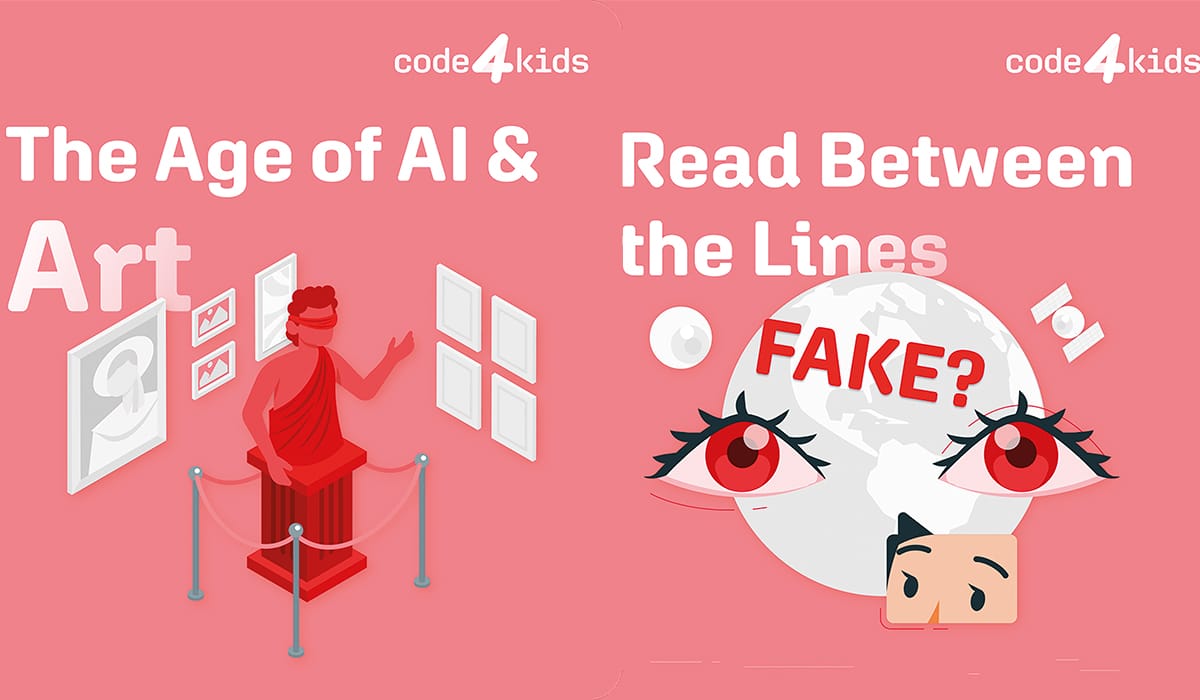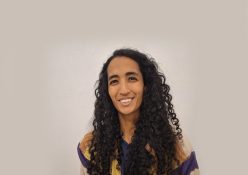Matthew Henshall of Code4Kids builds technologies and relationships to teach digital literacy skills to young people.
Education-technology entrepreneur Matthew Henshall’s Code4Kids initiative aims to provide teachers with materials and support to teach coding, robotics, and technology literacy to junior-school students even if the teachers have no coding or technical background themselves. He has now picked up the baton in the race to eliminate the risks targeted at younger (and less experienced) Internet users with a new course that will help young people to comprehend misinformation and disinformation, defamatory campaigns, fake news, and generative AI.
The new “first of its kind” course, Code4Kids Fake News And Independent Research, is a collaboration with The Economist Educational Foundation that is being made free for anyone who signs up at getcode4kids.com, although it is specifi cally targeted at young people between the ages of eight and 15, as well as teachers and schools.
Tech For Good
At the core of Henshall’s passion for education and technology is empowerment. Boosted by his clear understanding of the current socio-economic challenges facing society, his edge for effecting change keeps maturing. Since his early strides over a decade ago, Henshall has established a solid track record in edtech. His creations have shaped how learners experience and interact with technology, including in communities such as Nyanga in Cape Town. He has since remodelled how tech can boost learning, resulting in Code4Kids’ curated courses, which allow learners to gain technical skills and knowledge as they work through coding projects that have real-world applications. In this way he has demystified coding and turned it into a basic human skill that’s accessible to all.
The success of the Code4Kids initiative has now resulted in it attracting further support from other educational organisations, including The Economist Educational Foundation.
How did your collaboration with The Economist Educational Foundation come about?
We try to focus on teaching real coding in a relevant context. For example, instead of students playing a coding “game” or solely using Blockly code we try to teach coding languages used in the real world. In more recent times, the rise of AI and fake news led us to collaborate with experts in the arena and that was The Economist Educational Foundation. That helped us to develop a world-class course for students on fake news and AI!
What inspires your continuing drive to push for innovations in edtech?
Our passion for education is deeply rooted in the belief that knowledge is the cornerstone of a progressive society. What drives our innovation in educational technology is the recognition of the rapid pace at which the world is changing, especially with the advent of digital technologies. We see a pressing need for educational resources that are not only current but also capable of equipping students with the critical-thinking skills necessary to navigate a future dominated by digital information and artificial intelligence.
How is learning being revolutionised in real time through interactive platforms?
The potential of technology to transform learning, making it more accessible, engaging, and relevant, inspires us to push boundaries and create [materials] that prepare students for the challenges and opportunities of tomorrow.
Code4Kids lobbies for early-age digital literacy. What are the objectives behind the collaboration with The Economist Educational Foundation and what is its involvement in the Code4Kids Fake News And Independent Research course?
The project primarily cultivates early-age digital literacy while empowering learners to assess the information they encounter online critically. We fuse our expertise in coding and digital literacy, providing the technical foundation upon which students can build. The Economist Educational Foundation contributes its Topical Talk lessons, which are designed to enhance students’ understanding of current affairs and develop their journalistic skills. We aim to equip students with the tools they need to discern truth in a digital age flooded with misinformation, thus fostering a more informed and responsible digital citizenship.
Misinformation is bolstered by information manipulation, image distortions, and various other rogue consequences of automated technologies. How can purpose-designed tools counter this effect?
Beyond digital literacy, our project is rooted in the philosophy that education should foster social cohesion by teaching empathy, critical thinking, and the ethical use of technology. In an era in which automated content generation can exacerbate social divisions, we aim to shift perspectives by encouraging students to understand the broader implications of the digital content they consume and create.
The course aims to equip learners with critical-thinking skills that will allow them to analyse and understand digital content without a blind spot. What is the philosophy or social perspective – given the negative impact that automated online content is beginning to have on social cohesion – that you intend to target or shift with the skills the learners will acquire?
This holistic approach not only targets the skill of discerning digital content but also aims to nurture a generation that values truth, diversity, and inclusivity, ultimately contributing to stronger social cohesion.
What is the importance in investing in digital tools to counteract the intended or perceived damage to the social fabric caused by phenomena such as deepfakes and manipulated online experiences?
The investment in digital tools to counteract the effects of deepfakes, misinformation, and fake news is of paramount importance. These phenomena threaten the very fabric of our society by undermining trust and promoting divisiveness. By investing in educational technologies that promote critical thinking and digital literacy we can begin to repair the social fabric torn by misinformation. These tools empower learners to evaluate information critically, understand its sources, and appreciate the impact of their online behaviours, fostering a more informed and cohesive society.
Is enough being done to uphold the governance and championing of children’s digital rights and the protection of those rights?
While strides have been made towards upholding and protecting children’s digital rights there is still a significant gap in ensuring their comprehensive protection. Awareness and implementation of governance structures that safeguard these rights are crucial, yet often lacking. The missing link is a concerted eff ort that combines policy, education, and technology to create a safe digital environment for children. This involves not only protecting them from harm but also empowering them with the knowledge and skills to navigate the digital world responsibly.
What makes “creating tech for good” another significant direction in building moderated content for the technologies?
“Creating tech for good” stands as a testament to the potential of technology to drive positive change. It is significant because it aligns technological advancement with human values and societal needs, ensuring that progress benefits all. Upholding this as a central philosophy requires a deep understanding of the social impacts of education.
Deep Dive
The Code4Kids Fake News And Independent Research Course
The course is designed to teach young people critical-thinking skills, as well as technical skills, that will enable them to identify fake news, AI generated content, and disinformation.
- The course features The Economist Educational Foundation’s Topical Talk lessons, which have been developed by subject-matter-expert teachers and journalists to help schoolteachers discuss topical news stories and current affairs in depth with their students so that the students will develop important thinking and communications skills.
- Participants in the course build their own web sites and games that focus on topics such as independent research, AI and its impact on the arts, and fake news. They will also further develop their HTML and CSS development skills by building a news web site that they will use to publish their own news stories and opinion pieces.
- The course is free and teachers will receive support from the Code4Kids team via quick weekly training videos that are designed even for teachers who have no coding knowledge.

Watch a video introduction to the new course here.
Words by: Levi Letsoko
Imagery: Supplied







